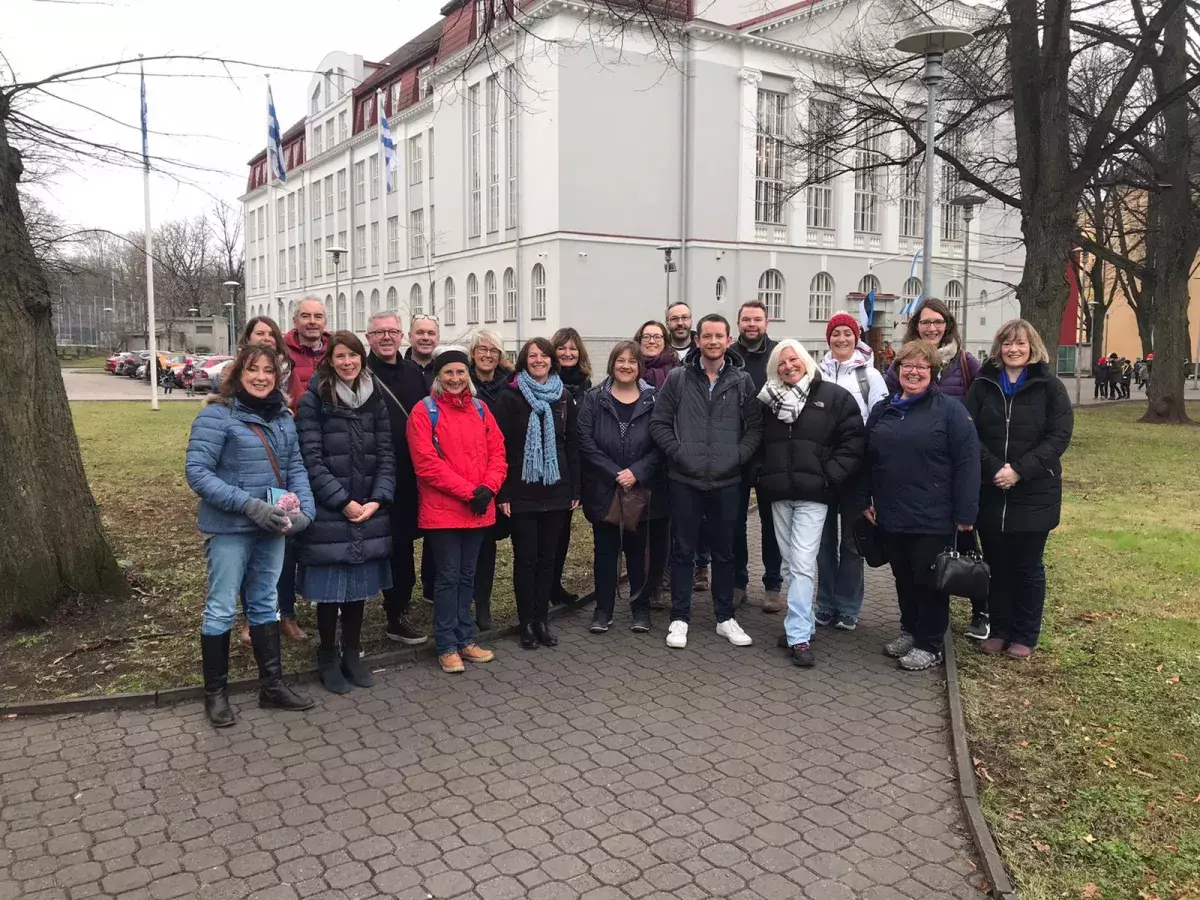- About us
- Schools
- Area planning
- Find your Schools’ Support Officer
- Best practice case studies
- Funding opportunities
- School vacancies
- Shared education
- #OpenToAll
- CSSC Award in Excellence in Educational Research
- Erasmus+
- CSSC Membership Survey 2022 – Results
- CSSC Sign Language programme - engaging with sign, a language for you and me
- Governors
- News
- Events
- Publications
- Ethos
- #OpenToAll
- Contact
- Search
To Estonia in search of school improvement
The CSSC Erasmus+ funded programme to Finland and Estonia took place 2-9 November 2019 as part of the organisation’s Building Capacity programme.

From Finland, the group travelled to Estonia, which has a high performing education system. The rationale for the visit to Estonia was to learn more about the approach to self-evaluation and school improvement.
Senior leaders from Northern Ireland had the opportunity to visit a number of schools providing both primary and post primary education. These visits consisted of observing learning, discussing practice with staff and pupils and engaging with senior leaders of the Estonian schools during presentations. Time was also spent with leading academics from Tallinn University exploring school effectiveness and school improvement.
Many similarities with the educational system in Northern Ireland were identified but the group was struck by the flexibility which enables schools in Estonia to exercise a much greater degree of autonomy over their curriculum and assessment methods.
Indeed, Eric Thompson, Principal of Glenlola Collegiate, observed that the, “absence of high accountability assessment coupled with flexibility in curriculum allows for innovative education to take place.” Eric reflected further that there was a, “high level of trust in the expertise of teachers and also substantial investment in teacher training and development.”
One such development opportunity for teachers was a collaborative programme between Tallinn University and Pelgulinna Gümnaasium. The programme effectively supported practice-based research that led to improved learning and empowerment of both students and teachers. School innovation was initiated and driven by the school.
Estonia is widely regarded as a leader in the field of technology and the senior leaders observed an integrated approach to using technology to promote learning. The senior leaders from Northern Ireland enjoyed the opportunity of observing drones and other technologies used to promote mathematical learning and a lesson on robotics using Lego. Mart Laanpere (Senior Research Fellow in Educational Technology, Institute of Digital Technologies, Tallinn University) emphasised the importance of starting with the pedagogy and then considering the technology.
Dr Adrian Witherow, Vice Principal of Ballyclare High School commented, “Mart reminded me of the importance of staff remaining at the cutting edge of ICT (e.g. pilot projects) in order to ensure pupils are best prepared for new and emerging careers.”
An analysis of Estonia’s success in PISA suggests a range of contributing factors including, but not exclusively, the highly qualified teaching workforce, the application of metacognitive learning strategies, equal opportunities and a level of autonomy within the system.
As in Northern Ireland, both Finland and Estonia place significant emphasis on the importance of the voice of the child and the development of independent learners, with good skills of co-operation and critical thinking and the ability to analyse their learning and set their goals.
Whilst the group of senior leaders from Northern Ireland learned much during the mobility from our colleagues in Finland and Estonia, and the opportunities to reflect together, the visit also affirmed the effective practice that we demonstrate in our schools.
To find out more about the mobility contact Jill Brown, School Support Officer, who co-ordinated the Erasmus+ funded mobility as an integral part of the CSSC Building Capacity in School Improvement programme.
25 November 2019